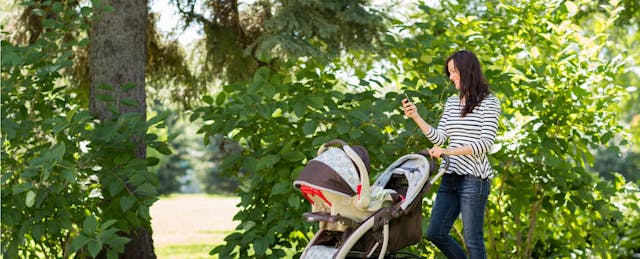“Fact: Shapes are everywhere. When you talk about shapes in your everyday environment, you build early geometry skills that will be important for math later on.”
So begins a text message from Ready4K, an application that texts parents of young children facts and tips on literacy, math and social and emotional skills three times a week. That text message about shapes goes on give parents a tip—to stretch with their toddler by drawing big circles in the air with with their arms—followed by advice on ways to keep exploring shapes—such as by hunting for circles as they’re out and about.
Another fact: Ready4K’s San Francisco Bay Area-based creator, ParentPowered, has raised $2.65 million in a seed round of equity financing led by Omidyar Network to continue reaching parents with its content. Other investors include Valhalla Charitable Foundation, The Richard E. and Nancy P. Marriott Foundation and Heising-Simons Foundation.
Benjamin York, the founder of ParentPowered, told EdSurge he plans on using the new money to invest in expanding its content, the technology’s platform and in growing the team from six to upwards of 15 employees. The goal, he says, is to create “an on-demand library for parenting tips.”
All of Ready4K’s tips are built in-house, “drawing on research in child development, positive parenting practices and promoting healthy behaviors, as well as the early learning standards of essentially all states,” York claims. He adds that “we also look to best practices promoted by expert organizations.”
York boasts a doctorate degree in education from Stanford University, with a focus on early childhood education. During the 2013-2014 school year, he and Susanna Loeb (Ready4K’s academic advisor) conducted a study on how Ready4K was used in San Francisco Unified School District. They found that “parents who received text messages with fun facts and easy tips on how to maximize existing family routines engaged in more home learning activities and were more involved at school than parents in a control group.”
Text messages are one of the most accessible form of communication, and one of the reasons he chose that medium for Ready4K, says York. He cites a Pew survey that found that 97 percent of American adults under age 50 have a cell phone.
York also points out that texting doesn’t require downloading and figuring out how to use an app. Texting is a “native application to most cell phones” and requires “no learning curve.”
Another feature of text messaging that makes it attractive to York is the 160 character constraint, which “ensures that information is broken down into bite sized pieces.” Also, he adds, text messages keep a historical record (versus push notifications that go away and are generally hard to retrieve).
According to York, there’s also “a mounting research base” on the “effectiveness of texting to promote positive behavior change. In health, he says, texting has been shown to improve outcomes like weight loss. And in education, it has been linked to improvements in grade point average.
The core version of the program is free for all parents, school districts and community-based organizations But institutions that want additional services, such as implementation support, have to pay. In that case, there’s a startup fee that York says ranges based on the “complexity of the implementation,” and the initial cost is $4.19 per parent, per year. Ready4K also envisions partnering with hospitals in the future.
Ready4K is not alone in services that send tips to parents. In December, Amazon announced its integration of Vroom, a collection of tips and activities for parents and their young children, into Alexa, the virtual assistant used in Amazon Echo. There’s also Bright by Text, a program by Colorado non-profit Bright by Three, which sends parents and caregivers free activities, games and resources about literacy, health and safety to their cell phones.


